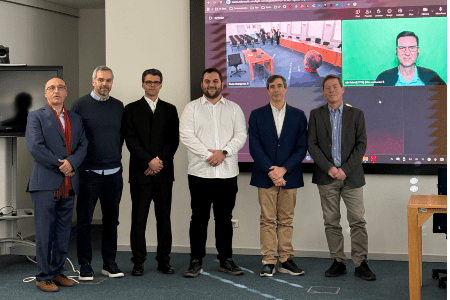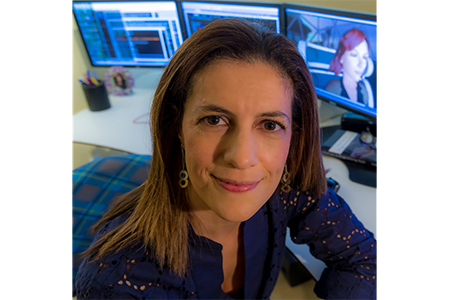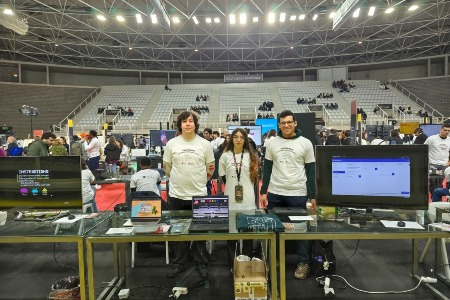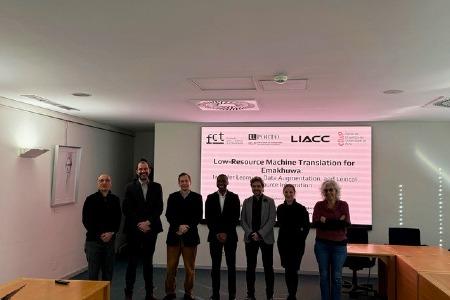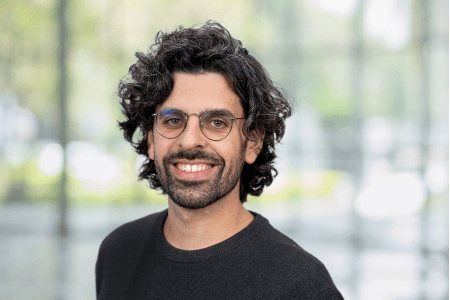A 18ª Creativitity Talk será dada por António Vicente, Professor Catedrático da U.Minho e investigador reconhecido, nacional e internacionalmente, pela sua imensa contribuição científica nas áreas da Biotecnologia e Bioengenharia Alimentar. Nesta palestra, iremos descobrir como tendências como clean label, alimentos funcionais e proteínas alternativas, aliadas a tecnologias como inteligência artificial e agricultura celular, estão a transformar a forma como comemos e produzimos alimentos.
Uma excelente oportunidade para perceber como podemos melhorar a saúde das pessoas e do planeta, e fazer parte desta mudança!
Transmissão online no dia 5 de março, às 17:30, no canal Youtube das Creativity Talks.
A moderação estará a cargo da Prof. Cláudia Gomes Silva, do Departamento de Engenharia Química e Biológica da Faculdade de Engenharia da Universidade do Porto.
Sobre a Palestra:
“Houve uma mudança significativa nas preferências, aceitação e necessidades dos consumidores nos últimos dez anos, que foi particularmente forte nos últimos cinco anos. As “principais tendências” são: Alegações de pureza (por exemplo, sem conservantes); Rótulos de pureza; Melhoradores do estilo de vida (por exemplo, alimentos altamente energéticos); Alimentos funcionais (por exemplo, com função nutracêutica); Alimentos minimamente processados (por exemplo, utilizando ingredientes naturais tanto quanto possível) e os chamados “alimentos verdes” (aproveitando os benefícios das plantas – por exemplo, substituição de proteínas animais por outras fontes de proteína).
Juntamente com esta mudança, existem dois grandes problemas relacionados com os alimentos que ingerimos: I) garantir a alimentação, a saúde e o bem-estar das pessoas e II) garantir a saúde do nosso planeta.
Ao responder ao problema I), os alimentos do futuro precisam de combater a desnutrição, reduzir a densidade calórica, reduzir a digestibilidade dos alimentos, aumentar a biodisponibilidade de micronutrientes, controlar a saúde intestinal, permitir uma nutrição personalizada e fornecer alimentos adequados para os idosos.
Para responder ao problema II), precisamos utilizar um conjunto de ferramentas para o futuro: biologia molecular, nanotecnologia, inteligência artificial, robôs e sensores, a chamada “agricultura celular” e a busca por fontes alternativas de proteínas.
Nesta palestra, serão apresentados os últimos desenvolvimentos realizados pelo nosso grupo de investigação para enfrentar alguns destes desafios, juntamente com a nossa visão sobre o que ainda precisa de ser feito e quais as parcerias importantes para nos levar ao futuro dos alimentos, produzindo alimentos para o futuro.”
Sobre o Orador:
António Vicente licenciou-se em Engenharia Alimentar pela Universidade Católica Portuguesa em 1994, obteve o seu doutoramento em 1998 e fez a sua habilitação em 2010 em Engenharia Química e Biológica pela Universidade do Minho. É professor no Departamento de Engenharia Biológica, que dirigiu antes das suas nomeações subsequentes como vice-reitor da Faculdade de Engenharia e diretor do Colégio de Doutoramento dessa universidade. Atualmente, é Reitor da Faculdade de Engenharia.
António Vicente é Membro Sénior e Especialista em Engenharia Alimentar pela Associação de Engenheiros Portugueses.
Como investigador, dedicou o seu trabalho ao desenvolvimento de sistemas micro e nanotecnológicos para aplicação no setor agroalimentar, à avaliação do seu comportamento em sistemas dinâmicos de digestão in vitro e ao estudo da influência da aplicação de campos elétricos em células e biomoléculas.
Publicou mais de 380 artigos em revistas internacionais ISI WOS, mais de 30 capítulos em livros de circulação internacional, mais de 400 artigos em congressos, 5 patentes e editou 5 livros científicos, obtendo um índice h de 95. Ganhou os Prémios Alimentação e Nutrição em 2015 e 2017 na categoria I&D. Durante seis anos (2018, 2019, 2020, 2021, 2022 e 2023), foi distinguido como Investigador Altamente Citado pela Clarivate Analytics e, nos últimos cinco anos (2020, 2021, 2022, 2023 e 2024) integrou a lista dos 2 % dos investigadores mais citados, de acordo com a lista publicada pela Universidade de Stanford. Em 2021, recebeu o Prémio de Mérito Científico da Universidade do Minho e o Diploma de Mérito Científico da Escola de Engenharia da Universidade do Minho anualmente desde 2021.

